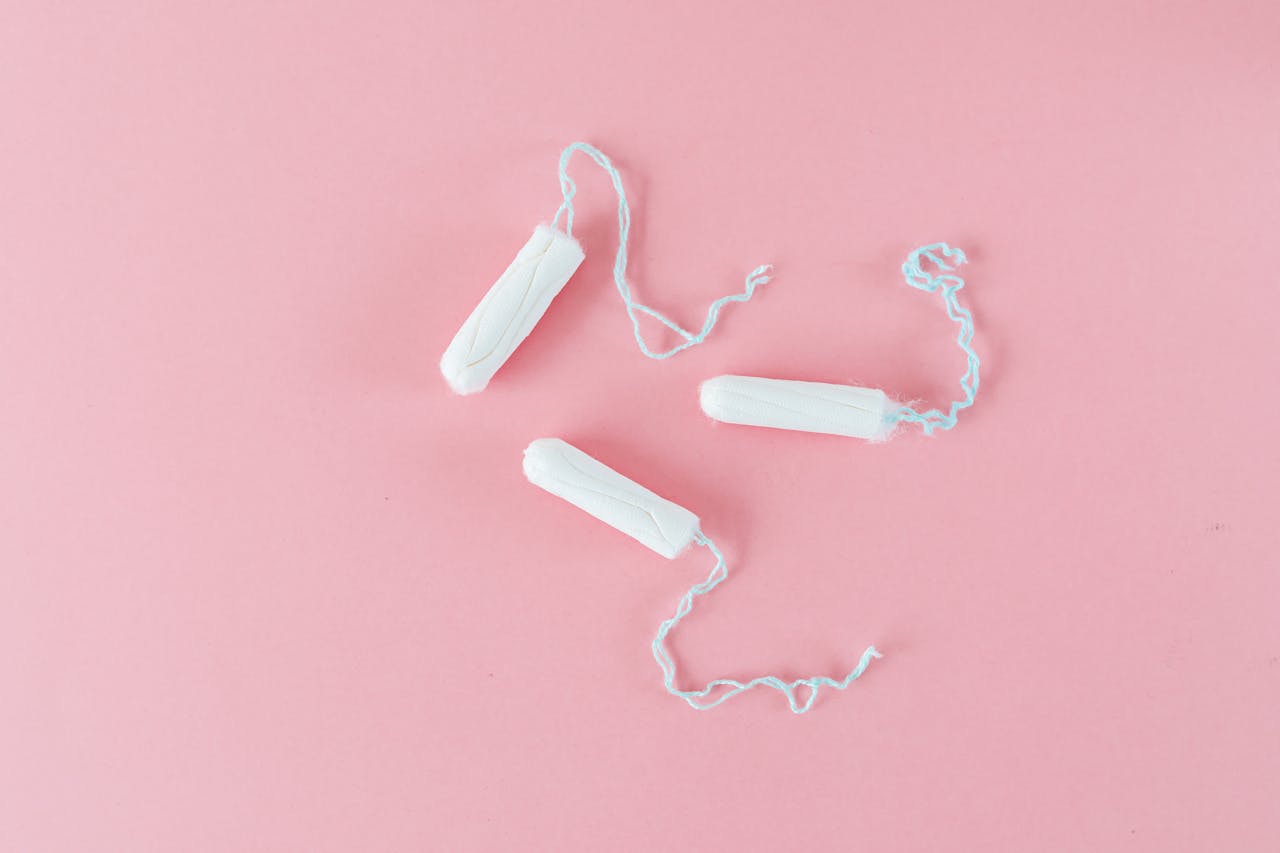What is moon face PCOS?

Moon face PCOS is an expression used to refer to the facial features of women having polycystic ovary disease or PCOS.
In medical terminology, moon face or moon facies is an expression used to delineate facial swelling that makes the face look round and puffy like a full moon. Moon face PCOS can occur due to excess weight when there is an accumulation of fat on the sides of the face.
Moon face PCOS commonly refers to the facial features of women who have polycystic ovary disease. The causes of PCOS face shape are insulin resistance, hypothyroidism, and obesity. Moon face can also be caused by causes other than PCOS. You can get rid of moon face PCOS by taking various measures such as staying hydrated, reducing stress levels, decreasing salt intake, etc.
{{button}}
In a nutshell: What is moon face PCOS?
Moon face PCOS refers to certain common facial characteristics often noticed in women having PCOS. Polycystic ovary syndrome or PCOS is a condition that is caused by hormonal imbalances in women during their reproductive years.
Weight gain and obesity are some of the symptoms of PCOS apart from others such as menstrual irregularities and fertility problems. The excess weight can deposit on your face giving it the classic appearance of moon face PCOS.
What is PCOS face shape?
- Rounder and fuller cheeks than normal
- Double chin
- Puffy eyelids
- Excess hair growth on the face (due to excess male hormones in the body)
- Acne
What are the causes of moon face PCOS?
PCOS increases the incidence of hypothyroidism in women affected by the condition. Furthermore, women with PCOS have insulin resistance and are obese. All these conditions lead to moon face PCOS.
Hypothyroidism
Hypothyroidism is a condition in which the thyroid gland (a small gland located at the front of the neck) does not produce sufficient hormones to fulfill the demands of your body.
PCOS puffy face is one of the symptoms of hypothyroidism apart from other symptoms such as weight gain and fatigue.
Insulin resistance
Insulin resistance occurs when body cells become resistant to the insulin hormone, and the body must produce excessive levels of the hormone to combat this resistance. Insulin hormone controls the blood sugar levels.
In insulin resistance, the body cells cannot easily utilize glucose from the blood, leading to increased blood sugar levels. The excess sugar is stored in the liver and muscles and converted into fat. This ultimately results in weight gain and PCOS round face, puffy face, and moon face.
Obesity
Obesity and weight gain are among the common symptoms of PCOS in women. Obesity leads to fat accumulation on the sides of the face and makes it look round and puffy giving the characteristic PCOS face shape.
What are the other causes of moon face?
There are various other causes of moon face PCOS.
Corticosteroids
Using steroids such as prednisone is among the most common reasons for getting a moon face PCOS.
What are the different medical conditions for which prednisone may be prescribed?
- Autoimmune diseases such as Addison’s disease and lupus
- Certain blood disorders such as anemia
- Inflammatory disorders such as asthma and arthritis
- Certain cancers such as lymphoma and blood cancer
- Certain skin problems such as poison ivy
How do long-term corticosteroids cause moon face PCOS?
Long-term use of corticosteroids causes an excessive release of cortisol (a stress hormone) by the adrenal glands. Gradually this imbalance of hormones can cause water retention and weight gain leading to PCOS round face and PCOS puffy face.
Cushing’s syndrome
Cushing’s syndrome is a medical condition in which the body produces an excessive amount of the cortisol hormone over an extended time. Cortisol is also referred to as the stress hormone as it helps the body respond against stress.
What are the causes of Cushing’s syndrome?
- Long-term use of cortisol-like steroids (glucocorticoids) in high doses
- Pituitary tumors
- Adrenal gland tumors
- High levels of stress
What are the symptoms of Cushing’s syndrome?
- Weight gain
- PCOS round face
- PCOS puffy face
- Mood changes
- Easy bruising
- Weakness of muscles
Hypothyroidism other than PCOS
Hypothyroidism is a medical condition in which the thyroid gland is unable to produce sufficient thyroid hormones to fulfill the body’s needs. Thyroid hormones are essential for the body’s energy consumption or metabolism of the body. Hence, without enough thyroid hormones, the body’s metabolism slows down.
What are the causes of hypothyroidism?
- Autoimmune diseases
- Thyroid gland removal
- Radiation therapy to the gland to treat thyroid gland cancer
What are the signs and symptoms of hypothyroidism?
- Weight gain
- Joint pain
- PCOS puffy face
- Depression
- Fatigue
What are the risk factors for moon face PCOS?
The factors that may play a vital role in causing PCOS; thereby, PCOS face shape include:
Insulin resistance
In insulin resistance, an excessive amount of insulin hormone is present in the blood which can result in the secretion of a large amount of androgen, the male hormone. The latter can lead to symptoms of PCOS including PCOS masculine face.
Heredity
A family history of the condition can increase your risk of developing moon face PCOS.
How to get rid of moon face PCOS?
Reduce stress
Stress may worsen hormone imbalances and insulin resistance. Both these factors play a major role in causing moon face PCOS. Furthermore, stress may cause you to eat more and result in obesity, another contributor to PCOS face shape.
How to reduce stress?
- Get an ample amount of sleep
- Get more exercise
- Eat a healthy and balanced diet rich in fresh vegetables and fruits
- Reduce your intake of caffeine
- Spend quality time with family and friends
- Practice mindfulness techniques
- Do deep breathing exercises
- Work on self-care techniques such as getting a massage, doing yoga, exercising, etc.
Eat less processed foods and salt
Excessive salt intake leads to body water retention, resulting in facial swelling and PCOS puffy face. Therefore, reduce your salt intake. You should also eat less processed foods, as they contain loads of salt.
Eating less salt and processed foods reduces water retention and helps promote insulin sensitivity, balance hormones, and reduce inflammation.
Which processed foods contain a high amount of salt?
- Pizza
- Soups
- Cured meats
- Breads, buns, and rolls
- Tacos and burritos
- Poultry
- Savory snacks
- Cheese
- Burgers
- Cookies, cakes, and brownies
- Chicken and vegetable nuggets
- Sausages
- Bacon
- Pasta
Stay hydrated
You should drink enough water to stay hydrated as dehydration can accentuate PCOS puffy face and PCOS face shape.
Due to dehydration, the body cells tend to hold and absorb water which can result in puffiness, swelling, and moon face PCOS. Staying hydrated helps reduce fluid retention, particularly in the facial tissues.
Eat a healthy and well-balanced diet
Women with PCOS are at an increased risk of developing insulin resistance, obesity, metabolic syndrome, and type 2 diabetes or prediabetes. Eating a healthy and well-balanced diet plays a key role in managing the various symptoms of PCOS including moon face PCOS and PCOS double chin.
What foods to add in your diet?
High-fiber foods such as:
- Cruciferous veggies such as broccoli, Brussels sprouts, cauliflower
- Red and green peppers
- Almonds
- Pumpkin
- Sweet potatoes
- Berries
Lean proteins such as:
- Tofu
- Fish
- Chicken
Anti-inflammatory spices and foods such as:
- Kale
- Tomatoes
- Turmeric
- Spinach
- Walnuts and almonds
- Olive oil
- Fatty fish rich in omega-three fatty acids (such as sardines and salmon)
- Fruits such as strawberries and blueberries
What foods to avoid or limit in your diet?
- Foods containing large amounts of refined carbohydrates such as muffins and white bread
- Drinks and snacks containing high amounts of sugar
- Inflammatory foods such as margarine, fries, and processed or red meat
Get regular physical exercise
Getting regular physical exercise helps in managing PCOS and relieving its symptoms including moon face PCOS. Regular exercise helps promote weight loss, reduce insulin resistance, and regulate hormonal imbalance.
What exercises can you consider?
Some of the exercises that you can include in your daily routine to reduce PCOS face shape are:
- Cardiovascular workouts/aerobic exercises such as walking, dancing, or riding a stationary bike
- High-intensity interval training or HIIT workouts such as tuck jumps and burpees
- Interval training exercises
- Mind-body exercises such as Pilates, tai chi, and yoga
- Strength training exercises
How to reduce the moon face from other illnesses?
Treatment of moon face PCOS from other illnesses depends on its cause.
Corticosteroids
If PCOS face shape is due to taking corticosteroids then reducing the dosage can decrease PCOS puffy face with time. It is recommended to speak to your healthcare provider before making any changes to the dosage of your steroids.
Cushing’s syndrome
Managing Cushing’s syndrome will also reduce the moon face PCOS gradually with time.
The following are the options to manage Cushing’s syndrome:
- Reducing the dosage of steroids gradually
- Surgical removal of pituitary or adrenal tumors
- Chemotherapy or radiation therapy to reduce the size of tumors
Hypothyroidism
Your physician will prescribe a medicine to treat hypothyroidism (levothyroxine). The medicine replaces the hormone that your thyroid gland is not able to produce in sufficient amounts. Your physician will adjust the dosage of the medicine according to the requirements of your body.
Once your hypothyroidism is controlled, the symptoms of moon face PCOS may subside gradually over time.
How to prevent moon face PCOS?
- Maintain a healthy weight
- Reduce your intake of salt
- Stay hydrated
- Get an optimum amount of sleep
{{pink-banner}}








.avif)
